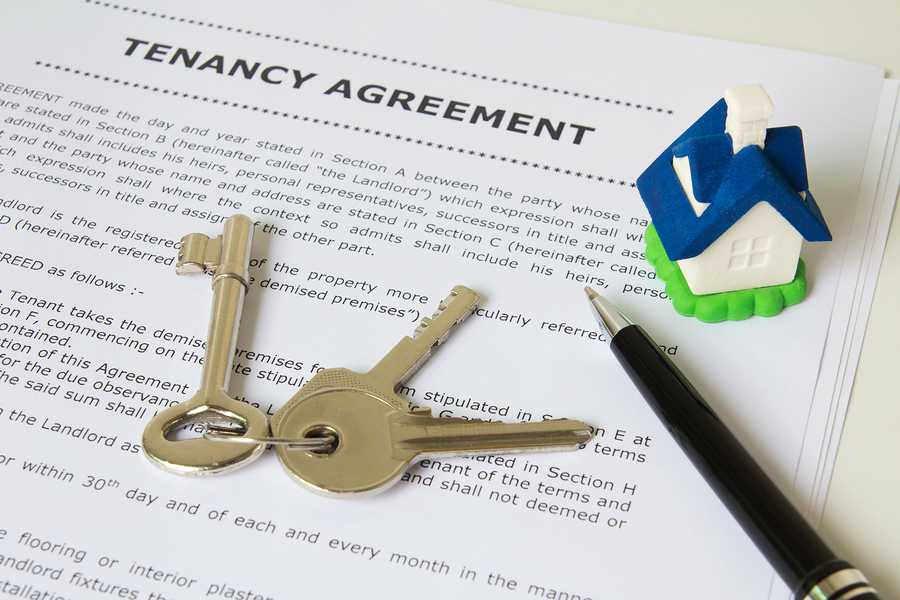
In a Commercial Eviction in Maryland, the Lease Provides a Framework to Address the Breach
- August 29, 2016
- William Heyman
- Comments Off on In a Commercial Eviction in Maryland, the Lease Provides a Framework to Address the Breach
As in other states, Maryland courts typically characterize commercial landlords and tenants as more sophisticated parties capable of freely bargaining the terms and conditions of their relationship. The terms, conditions, and framework for the relationship are typically set forth in a written commercial lease document that courts will analyze to determine the intent and goals of the parties. Therefore, careful drafting of a commercial lease agreement so that its terms are accurately reflected is essential.
William Heyman of the Law Firm of William S. Heyman is Baltimore real estate litigation attorney with more than 20 years of experience. Mr. Heyman can help landlords and commercial property management firms manage their legal risk. If the firm is already in a dispute or involved in litigation, he may be able to negotiate or litigate on your firm’s behalf. To schedule a confidential consultation, call (410) 305-9287 today.
A Written Lease Defines Obligations and Protects a Party
A soundly drafted written commercial lease is often the document upon which a dispute turns. This is because the document should define and set forth each party’s rights, responsibilities, and obligations. Furthermore, the written lease is typically negotiated and executed early in the relationship before disputes, disagreements, or personal friction can introduce additional complications to the relationship. As such, the written lease is generally seen as the most accurate reflection of the commercial lease.

However, few parties set out in a transaction with the belief that the endeavor will fail or result in significant disagreement. Therefore, a significant temptation can exist on the business side to expedite the process and fail to consider or account for foreseeable complications that can result in a deal becoming unfavorable. Therefore, despite the sense of optimism that accompanies most new business ventures, a prudent negotiator of a commercial lease for a landlord should attempt to achieve two main goals:
- Ensure that the process and procedures that will be used to interpret the lease should the commercial tenant breach are clearly set forth and understood.
- Draft the lease to maximize protections for the landlord regarding both the physical property itself and the rent or other payments due under the terms of the lease.
What Should a Landlord Do When Considering a Commercial Eviction in Maryland?
When a commercial landlord is facing a problem tenant, the first steps he or she should take is to review the commercial lease agreement. Furthermore, he or she should collect any and all evidence that the landlord may have regarding the commercial tenant’s breach of the terms of the lease or other actions that necessitate the commercial eviction. Some valid reasons a commercial landlord might seek a commercial eviction may include:
- Failure to pay rent.
- Causing damage to the premises..
- Using the premises for illegal activity.
- Engaging in hazardous or dangerous activity that presents a risk of injury to other tenants or invitees.
In the case of a non-paying commercial tenant and other evictions, unless an agreement can be reached, the commercial landlord will be forced to navigate Maryland’s rent court system in the Maryland District Court for the county in which the property is situated. While the rent court action can entitle the commercial landlord to recover past rent and possession of the property, additional legal action is necessary to recover future rent.

In many cases, evictions can be handled by a qualified rent court agent. Some matters, however, require the guidance of legal counsel. Aside from being able to anticipate areas where the limited relief provided by the rent courts might necessitate additional legal action to make a full recovery, a lawyer can also prevent mistakes. Judges in the courts have a duty to dismiss actions that are not legally sufficient or otherwise fail to comply with the requirements of the courts. Judges in the rent court system can and will dismiss actions if they do not comply with all of the legal requirements, thereby causing additional delays and costs.
Work with an Experienced Baltimore Commercial Lease Lawyer
Maryland commercial lease dispute attorney William Heyman can put his more than 20 years of legal experience to work for your development or property management company. When negotiating a lease he works to identify and address foreseeable issues that can develop into a lease dispute. Mr. Heyman can also litigate on behalf of landlords and property managers. To schedule a confidential consultation call the Law Firm of William S. Heyman at (410) 305-9287.
